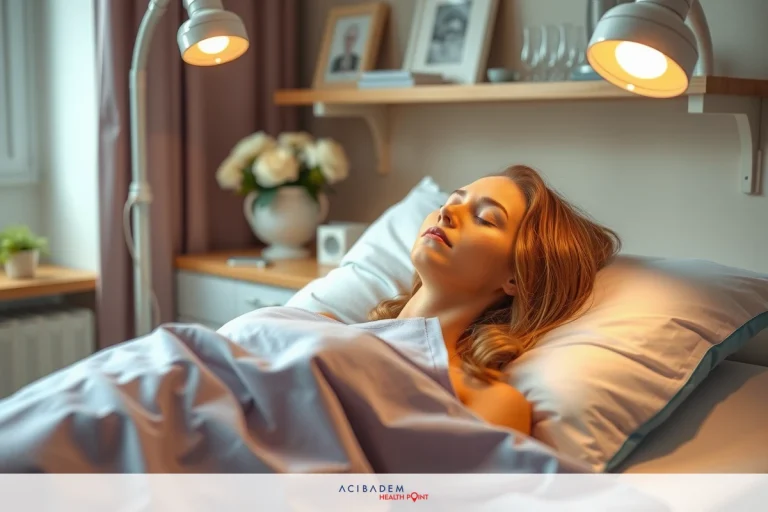How Long After Rhinoplasty Can I Sleep on My Side
How Long After Rhinoplasty Can I Sleep on My Side Rhinoplasty, a type of nasal surgery, often raises questions about post-operative care, particularly regarding the best sleeping position. After such an operation, it is crucial for patients to sleep in positions that will not put unnecessary pressure on the nose, thus promoting effective healing and reducing discomfort.
Choosing the right sleeping position after rhinoplasty can be quite challenging. Lying flat or sleeping on the side too soon can slow down the recovery process and lead to complications. The goal is to keep the head elevated and avoid any contact or pressure on the nose. This article aims to guide you through this challenge by providing practical tips and advice on how to sleep comfortably on your side post-rhinoplasty.
Choosing the Right Sleeping Position
After rhinoplasty, finding the optimal sleeping position is a key aspect of recovery. The primary goal is to prevent any pressure on your nose that could interfere with post-operative healing. Initially, side sleeping is not recommended as it can lead to complications. Instead, a semi-upright position is often suggested by healthcare professionals.
Sleeping in a semi-upright position involves propping up the head and upper body with pillows. This posture reduces swelling and helps to keep the nasal passages clear. It’s essential to maintain this position for the first few weeks following surgery, during which the most critical healing occurs. While it may feel unusual at first, this sleeping position can speed up your recovery time after rhinoplasty.
As your healing progresses, you can gradually transition from a semi-upright to a more traditional sleeping position. It’s vital to take this step slowly and carefully. Pay close attention to any discomfort or changes in your nose when altering your sleep position. If you notice increased swelling or discomfort, revert back to a more upright posture until symptoms subside. Remember, patience is key in the post-operative phase of rhinoplasty recovery. Your comfort and health should always be prioritized over rushing through the recovery process.
How Long After Rhinoplasty Can I Sleep on My Side: Tips for a Restful Sleep
After rhinoplasty, ensuring you have a restful sleep is key to your overall recovery. A good night’s sleep will heal your body faster and reduce the discomfort associated with the surgery. Here are some helpful tips to help you achieve a peaceful and uninterrupted sleep during your post-operative recovery period.
- Establish a Sleep Schedule: Try to go to bed and wake up at the same time every day. This consistency can help regulate your body’s internal clock and improve your sleep quality.
- Create a Relaxing Environment: Make sure your sleep environment is quiet, dark, and at a comfortable temperature. You might also consider using white noise machines or earplugs to block out any disruptive noises.
- Avoid Stimulants Before Bed: It’s best to avoid caffeine, nicotine, and alcohol close to bedtime as they can disrupt your sleep pattern.
- Engage in Relaxation Techniques: Practices like deep breathing, meditation, or gentle yoga can help relax your mind and body, making it easier for you to fall asleep.
- Limit Naps: While napping might seem like a good idea when you’re recovering from surgery, try to limit them. Long or frequent naps can disrupt your regular sleep patterns.
Remember, while these tips are beneficial for most people, everyone is different. Listen to your body and consult with your healthcare provider if you’re struggling with sleep during your recovery from rhinoplasty.
Frequently Asked Questions

How soon can I start sleeping on my side after rhinoplasty?
: It is generally recommended to avoid sleeping on your side for the first few weeks after rhinoplasty. This is because sleeping on your side can put pressure on your nose, potentially causing discomfort and affecting the healing process. Follow your surgeon's instructions and gradually transition to side sleeping as advised.
Can I use a regular pillow after rhinoplasty?
While using a regular pillow is possible, it may not provide adequate support for your nose during the initial stages of recovery. Consider using a travel pillow or wedge pillow to help elevate your head and maintain a more comfortable position while sleeping.
Will wearing a nasal splint affect my sleep?
Wearing a nasal splint should not impact your ability to sleep. In fact, nasal splints are designed to provide support and protect the nose during the healing process. If you experience any discomfort or difficulty sleeping with the splint, consult with your surgeon for guidance.
How can I manage congestion and stuffiness during sleep after rhinoplasty?
Congestion and stuffiness are common after rhinoplasty due to swelling and temporary changes in the nasal passages. To manage these symptoms, consider using saline nasal sprays or rinses recommended by your surgeon. Sleeping with an elevated head position and utilizing a humidifier in your bedroom can also help alleviate congestion.











